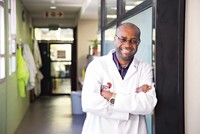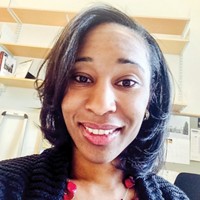Advertisement
Grab your lab coat. Let's get started
Welcome!
Welcome!
Create an account below to get 6 C&EN articles per month, receive newsletters and more - all free.
It seems this is your first time logging in online. Please enter the following information to continue.
As an ACS member you automatically get access to this site. All we need is few more details to create your reading experience.
Not you? Sign in with a different account.
Not you? Sign in with a different account.
ERROR 1
ERROR 1
ERROR 2
ERROR 2
ERROR 2
ERROR 2
ERROR 2
Password and Confirm password must match.
If you have an ACS member number, please enter it here so we can link this account to your membership. (optional)
ERROR 2
ACS values your privacy. By submitting your information, you are gaining access to C&EN and subscribing to our weekly newsletter. We use the information you provide to make your reading experience better, and we will never sell your data to third party members.
Environment
Program Provides Opportunities For Established Scientists To Do Research In Developing Countries
by William G. Schulz
September 4, 2006
| A version of this story appeared in
Volume 84, Issue 36
GLOBAL SCIENCE CORPS
An idea for international scientific collaboration, called the Global Science Corps (GSC), has been put forward by Harold E. Varmus, president of Memorial Sloan-Kettering Cancer Center. He envisions a program of fellowships that places established scientists from developed countries in universities and research institutions in developing countries.
Momentum is building to put his idea, originally put forward in a 2001 speech at the Nobel Foundation in Sweden, into action. GSC is today a program in search of funding that is being managed by the Science Initiative Group, an independent organization concerned with scientific capacity building in the developing world. Varmus serves on the board of SIG.
GSC is "capacity building through active research," says SIG Executive Director Arlen K. Hastings. Initially anyway, she says, there will be a focus on institutions in Africa, and "the hope is that fellows will learn through joint research but also train other people in the lab."
Hastings says GSC will place scientists from scientifically advanced countries at leading centers of research and training in the developing world to help build capacity in science through joint, active research across a broad spectrum of disciplines. GSC fellows will also share their expertise beyond the host facilities, lecturing at local institutions, visiting university laboratories and companies, and spreading their knowledge through the educational and private sectors.
"A 2007 goal for having fellows in place is pretty realistic," she says.
Once funding partners for GSC are found, Hastings says, SIG will broker the placements. She says the fellowships will be for a one-year term, with the amount of funding dependent in part on the seniority of the fellow chosen. She says all travel and living expenses will be covered, and money will be available for the fellow's research project.
Hastings says the goal for the first year is to have between six and eight fellows with funding for each scientist up to a maximum of $200,000 per fellow. She says hosts sites in Africa identified so far have been involved with the Millennium Science Initiative (MSI), a science and technology capacity-building program administered jointly by SIG and the World Bank (www.msi-sig.org). She emphasizes that fellows will not be starting research programs; rather, they will be joining research in progress.
"My laboratory is devoted to working on anti-infective agents from higher plants," says Berhanu M. Abegaz, a professor of chemistry at the University of Botswana, in Gaborone. His institution is one of the potential host sites for GSC.
"The main interest is to find agents that have antiprotozoal substances," Abegaz continues. "Malaria and African sleeping sickness are of relatively high interest. We are also actively pursuing a search for natural products that would reverse the resistance of the malaria parasite and mosquitoes to chloroquine and DDT, respectively. We isolate and characterize secondary metabolites from medicinal plants, and in some cases we also attempt the total or partial synthesis of interesting compounds. The availability and sustainability of potential sources of important natural products are of concern to us," he says.
In that regard, Abegaz continues, his group has been collaborating with others in micropropagation studies to try to grow tissue cultures of a plant to be used for feeding studies that will help reveal the biosynthesis of a novel and unusual alkaloidal metabolite isolated from an African plant. "We are also in the process of establishing a center for scientific research, indigenous knowledge, and innovation, which has identified three major areas of engagement: treatment of infectious diseases [malaria and TB and sexually transmitted diseases including HIV/AIDS] using natural products and indigenous knowledge; food security through the use of local products and indigenous knowledge; and agronomic studies and domestication of noncultivated, culturally and economically important plants."
MORE ON THIS STORY
- Changing Times
- Evolving The Doctorate Carnegie initiative inspires reshaping of Ph.D. programs to fit modern times.
- Benefits
Maternity Leave For Graduate Students. - Lofty Goals
Describing The Doctorate. - Passport To Science Once outnumbered by humanities majors, science students are now studying abroad in force.
- Global Science Corps
Program provides opportunities for established scientists to do research in developing countries. - Virtual Help
Study Abroad Web Resources. - No Substitute For Experience Chemical engineering students at all levels can benefit from 'learn and earn' opportunities.
- 10 Tips To Help You Get A Faculty Job Faculty from around the country share stories to help candidates 'ace' the interview process.
Hastings says host country scientists and students will gain directly from training and research collaboration with GSC fellows. Fellows, she continues, will benefit from exposure to science in another culture, opportunities to form long-standing research collaborations, access to clinical and biological materials, and chances to develop new research interests and address urgent local challenges such as malaria, AIDS, environmental conservation, and food security.






Join the conversation
Contact the reporter
Submit a Letter to the Editor for publication
Engage with us on Twitter